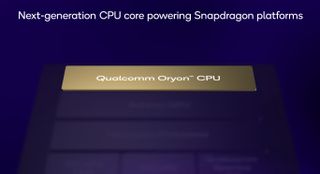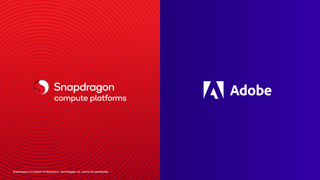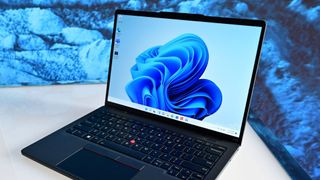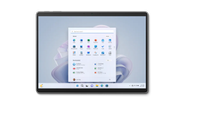Qualcomm announces ‘Oryon’ next-gen ARM CPU, Citi adopting Snapdragon PCs
Citi announces the transition of more than 70% of its 300, 000 global users to Snapdragon mobile PCs, and Oryon as a next-gen CPU core.

- At the annual Qualcomm Summit, the company revealed the name of its next-gen Nuvia-based CPU called Oryon.
- No other details about Oryon were given, as the processors are not expected to ship until early 2024.
- Citi announced that it is transitioning a large segment of its global users to Qualcomm-based computers including the new ThinkPad X13s.
- Adobe said more key Adobe Creative Cloud applications are coming to Snapdragon-based computers in 2023.
Momentum around Windows on ARM seems to be taking off as Qualcomm held its annual summit revealing new mobile processors for phones, focus on AI, and more.
While the company did not announce a follow-up to the (relatively) new Snapdragon 8cx Gen 3, it did reveal the name of its next-gen processors based on its Nuvia acquisition. Instead of Snapdragon, the new processors will be dubbed Oryon, presumably with numbering or further naming to differentiate the line of ARM-based PC processors.
Nuvia was acquired by Qualcomm in January 2021 for $1.4 billion. The company was made up of former engineers from Apple who designed its A-series chip for phones, which over a decade evolved into the M-series for its Mac computers.
Qualcomm originally wanted the first batch of Oryon (née Nuvia) chips to be in OEM hands for sampling around this time, but that goal has slipped to early 2023 with chips becoming commercially available sometime in 2024.
The ARM chip maker recently commented that it has a “significant number of design wins” from its new chips and it expects to see an “inflection point” for Windows on Snapdragon PCs in 2024, suggesting OEMs are liking what they see.

Qualcomm has long claimed that its Oryon processors will rival Apple’s M-series chips although that remains to be seen. A recent report heaped some praise on one of the processors, codenamed “Hamoa,” which allegedly has 12-cores (8P, 4E) based on the big.LITTLE architecture and has similar memory and cache configurations found in Apple’s PC chips.
Qualcomm is also dealing with a lawsuit from Arm Ltd., which claims Qualcomm has breached license agreements and trademark infringement with its Nuvia designs.
Get the Windows Central Newsletter
All the latest news, reviews, and guides for Windows and Xbox diehards.
Adobe and Citi on board with Windows on Snapdragon

Adobe is no stranger to Windows on ARM as it has released optimized versions of its Photoshop and Lightroom apps to take advantage of the platform.
Today, Adobe also announced that more of its core apps are being optimized for ARM Windows PCs although the company did not elaborate on which ones. These updated apps should ship sometime in 2023, but again, no firm information on an exact release date was provided.
In another victory, Qualcomm and Citi announced, “the transition of more than 70% of its 300,000 global users to mobile compute products, including award-winning products powered by Snapdragon like the Lenovo ThinkPad X13.”

Reasons for Citi’s interest in ARM-based PCs come down to “AI innovations, breakthrough performance, and power efficiency of Snapdragon compute platforms to enable new levels of productivity and collaboration while also advancing sustainability goals.”
Finally, Qualcomm also highlighted recent AI advancements in Windows 11 found around its camera imaging and microphone abilities that deliver auto-tracking, blurred backgrounds, and noise-cancellation thanks to the Neural Processing Unit (NPU), found in such devices such as the new Microsoft Surface Pro 9 5G.
Surface Pro 9 | From $999 at Microsoft
Microsoft's latest flagship 2-in-1 is available with either an Intel or ARM processor. No matter which chip you choose, you should see a performance boost when compared to the previous generation.

Daniel Rubino is the Editor-in-chief of Windows Central. He is also the head reviewer, podcast co-host, and analyst. He has been covering Microsoft since 2007 when this site was called WMExperts (and later Windows Phone Central). His interests include Windows, laptops, next-gen computing, and wearable tech. He has reviewed laptops for over 10 years and is particularly fond of 2-in-1 convertibles, Arm64 processors, new form factors, and thin-and-light PCs. Before all this tech stuff, he worked on a Ph.D. in linguistics, performed polysomnographs in NYC, and was a motion-picture operator for 17 years.
